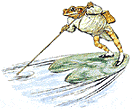http://www.asyura2.com/14/senkyo173/msg/256.html
| Tweet |

首相が消費税10%延期示唆?/英紙(FT)が報道
「しんぶん赤旗」 2014年10月21日(火) 日刊紙 2面
英紙フィナンシャル・タイムズ20日付(*電子版では19日付)は、安倍晋三首相とのインタビュー記事で、消費税率を10%に引き上げる増税について「延期を示唆」との見出しで報道しました。
インタビューの中で安倍首相は「もし増税で経済が成長軌道から脱線したり、減速したりすれば、税収は増えず、全てが無意味になってしまう」と述べました。この発言をとらえ同紙は、日本の成長が「失望させるものになれば」との条件をつけたうえで、首相は「消費税増税の延期を示唆した」との見出しを掲げました。
記事は「以前、安倍首相は自信を持って彼の改革を売り込んでいた」が、今回は「防衛意識が過剰な態度」をあらわにすることがあったと評しました。取材でアベノミクスの成功が疑問視されたとき、「いら立ちを示した」とも報じました。
この報道が波紋を広げています。菅義偉官房長官は20日午前の記者会見で「そうしたこと(延期示唆)ではない。首相が常日ごろ発言していることを申し上げた」と述べました。
「延期示唆」と報道されることだけでも、安倍政権の経済のかじ取りについて国際的にも疑問が投げかけられていることを示しています。
--------------------------------------
英フィナンシアル・タイムズ紙の該当記事はこちら ⇒
Abe balances tax rise against economic damage
Financial Times October 19, 2014 7:38 pm
http://www.ft.com/intl/cms/s/0/25431cfc-57af-11e4-8493-00144feab7de.html#axzz3GjQJy1Ue
Shinzo Abe has hinted that he may delay increasing Japan’s consumption tax, saying the move would be “meaningless” if it inflicted too much damage on the country’s economy.
In an interview with the Financial Times, Japan’s prime minister,
said the planned tax increase from 8 per cent to 10 per cent was
intended to help secure pension and health benefits for “the next
generation”. But he added: “On the other hand, since we have an
opportunity to end deflation, we should not lose this opportunity.”
The Japanese economy shrank
7.1 per cent between April and June compared with a year ago after Mr
Abe’s government raised consumption tax from 5 per cent to 8 per cent. A
second rise has strong backing from the Bank of Japan, the finance
ministry, big business and the International Monetary Fund, which all
want action to reduce the country’s mountainous debt. A postponement
would require a change in the law.
But Mr Abe said: “By increasing the consumption tax rate if the
economy derails and if it decelerates, there will be no increase in tax
revenues so it would render the whole exercise meaningless.”
His caution shows how much now rides on the
strength of the rebound in growth in the third quarter. He is expected
to decide on the tax in early December when the final data come in, but early indicators have been disappointing.
Concerns that Mr Abe’s plan to revive the Japanese economy is running
out of steam added to gloom over global growth prospects that stirred
financial markets around the world last week.
On previous foreign trips, the Japanese prime minister has acted as a confident salesman for his reform programme. He once urged traders at the New York Stock Exchange to “buy my Abenomics”.
But the exuberance has gone from Abenomics. Instead the effort to
turn around the Japanese economy is looking like a long, hard, perilous
slog.
In Milan, Mr Abe’s manner was sober and even, at times, defensive. He
showed flashes of irritation with commentators who have cast doubt on
the success of Abenomics.
“I believe there will come a day when the economy will start a
virtuous circle that will be felt in every corner of the nation,” he
said. “There are always those who criticise, but those people never come
up with an alternative.”
He acknowledged more was needed to help companies, particularly small businesses, hit by the weakening of the yen.
“Of course we will keep an eye on those in rural and local areas and
SMEs who are hit by the rise in import prices and as necessary it is our
intention to take measures,” he added.
There are always those who criticise, but those people never come up with an alternative
- Shinzo Abe, Japan’s prime minister, on doubting commentators
But
he was also keen to emphasise the successes that he believes Abenomics
has achieved – above all in the fight against deflation. “We have done
away with deflationary expectations,” he says, adding that wages are now
rising and that job vacancies are plentiful. More structural reforms
are also promised.
“Liberalisation of the power sector is proceeding” said Mr Abe, “and
whereas in the past, nobody even [suggested] reforms of agricultural
co-operatives, we’ve made a decision to undertake reform there and in
the medical sector and in employment law.”
When it was pointed out that US trade negotiators had openly
criticised Japan for failing to proceed with structural reforms to
secure a Trans-Pacific Partnership free-trade deal, Mr Abe laughed
briefly and opted for a diplomatic response. “We are in the last phase
of the negotiations and those are the most difficult.” He added that, in
a phone conversation with Barack Obama last week, he and the US
president agreed that “we would make maximum effort to conclude this”.
The foreign leader that Mr Abe would most like to speak to, however,
is probably Xi Jinping, the president of China. Tensions between Japan
and China remain high. The two countries continue to jostle over
disputed islands in the East China Sea. Beijing is also bitterly
critical of the Abe government’s treatment of history and of visits paid
to the Yasukuni war shrine in Tokyo, by the prime minister himself and
by colleagues.
Mr Abe has repeatedly requested a meeting with the Chinese president
and has so far been rebuffed. In Milan, he reiterated his hope that a
bilateral meeting with Mr Xi could take place at the Apec summit in
Beijing, next month, while saying that Japan could not agree to
“pre-conditions” – an apparent reference to China’s demand that Mr Abe
promise never to visit Yasukuni again.
Picking his words carefully, Mr Abe refused to comment in detail on
the military situation around the disputed islands that Japan calls the
Senkakus and that China calls the Diaoyu, saying: “Unfortunately, there
are incursions into our territorial waters, but we are dealing with this
rationally.”
Mr Abe stressed the mutual economic interests of Japan and China,
adding: “It would be good if we could have a heads of government meeting
at the Apec summit . . . to deal with contingencies, the defence
authorities should have a hot-line . . . If the summit meeting goes
ahead, I’d like to call upon China to do this.”
The shadow of Russia’s seizure of the Crimea hangs over China’s
territorial dispute with Japan. In the same Milan hotel that Mr Abe was
speaking, President Vladimir Putin of Russia was meeting with President
Poroshenko of Ukraine. Mr Abe had meetings with both the Russia and
Ukrainian leaders in Milan and told the FT: “Japan does not condone
changing of the status quo through coercion and intimidation.”
|
|
|
|
▲上へ ★阿修羅♪ > 政治・選挙・NHK173掲示板 次へ 前へ
|
|
 スパムメールの中から見つけ出すためにメールのタイトルには必ず「阿修羅さんへ」と記述してください。
スパムメールの中から見つけ出すためにメールのタイトルには必ず「阿修羅さんへ」と記述してください。すべてのページの引用、転載、リンクを許可します。確認メールは不要です。引用元リンクを表示してください。
